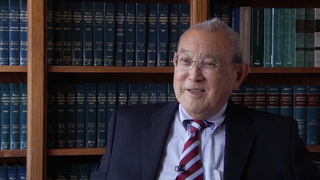Interviews
“…Put Me In A Cage”
I actually got a call from the governor’s office offering me a judgeship. I never had applied, didn’t wanted one…So I got a call saying, “we’ll appoint you to the bench.” And I went to lunch with a friend of mine. His name is Albert De Blanc, [Jr.], chair of one of the youth programs we developed in the mayor’s office. He’s the president of the black bar. I said, “What do you think? Here I get this call from Jerry’s office.” He said, “Rose, being a judge would…” And I answered, “…put me in a cage.” I said, “I would like the community esteem.
I would like to be a role model, and I would like all that.” But I said, “I have a lot of work to do.” I did the East LA incorporation. I had been an attorney for Serrano v. Priest. I had been a school teacher before, so I understand the issues of inequality of educational opportunities and here I’m doing the lawsuit about incorporation and political empowerment. I’m having a ball, not making much money, 10,000 for a Reggie1. But I was getting a lot of personal satisfaction because a lot of this was dealing with my personal history. So I turned him down and I worked on first establishing Manzanar as a National Historic Landmark.
1. Reginald Heber Smith Fellowships were awarded to young law graduates who chose to work in poverty law. They were called “Reggies.”
Date: July 17, 2013
Location: California, US
Interviewer: Sean Hamamoto
Contributed by: Watase Media Arts Center, Japanese American National Museum; Japanese American Bar Association





